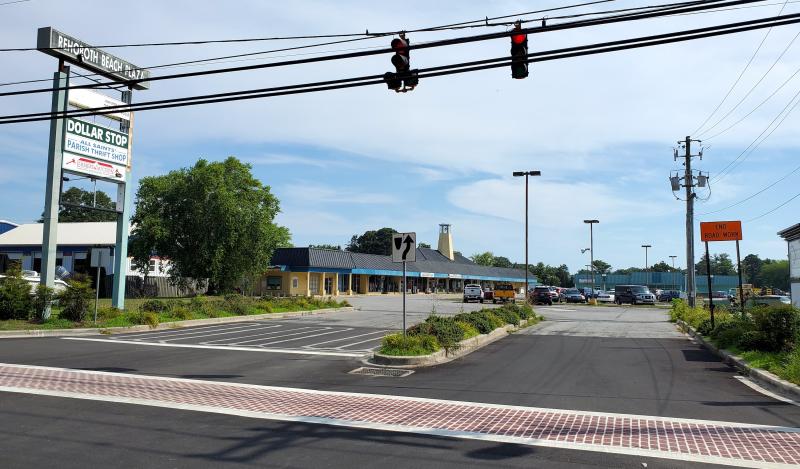Judge rules one building, one lot applies to BeachWalk
A Chancery Court judge has ruled that a 2016 ordinance in Rehoboth Beach codifying that only one building could be built on a lot shall apply in full to BeachWalk, a 63-unit condominium development on the Forgotten Mile section of Rehoboth Beach that was introduced in 2015.
The BeachWalk case has been going on for years. Developer Keith Monigle is seeking to build 63 residential units on a 7.75-acre parcel off Route 1, currently operating as Rehoboth Beach Plaza shopping center. His plans call for 58 single-family homes and five apartment-style units, but lots would not be subdivided; houses would be constructed on a single lot.
During a special meeting in May 2019, city commissioners voted unanimously to enforce an ordinance created in 2017 that applies to all pending and future applications, and an ordinance created in 2016 codifying that only one building could be built on a lot. Soon afterward, attorney Richard Forsten filed a lawsuit on behalf of Monigle.
In pretrial filings, the city’s attorney Max Walton argued that Monigle believed the city code was fairly confusing, and that he purposefully avoided submitting his redevelopment plan to the city for concept review because he feared the city could close the code loophole Monigle believed he had found.
However, Forsten, on behalf of Monigle, argued the city was retroactively enforcing an ordinance that allows only one building on one lot and that this was a case of vested rights. He argued the property’s redevelopment could be done as a condominium if drafted and built correctly. Monigle also provided statements from various city officials indicating that he could redevelop the property as a condominium.
At trial this past summer, Monigle was questioned on how much he relied on city code and the statements of city officials before he filed plans with the city. The city argued that Monigle didn’t rely on the good faith of the code before he filed because he did not read it.
In a ruling issued Wednesday, Oct. 13, Judge Sam Glasscock said, “It was clear that Monigle was aware from the earliest planning stages that the city might prefer to impose a subdivision requirement on him, that he eschewed the chance to put tentative plans before the city, to avoid ‘poking the beast,’ and that he therefore relied on rather obscure assurances from city officials that he would be able to proceed without subdivision.”
In an Oct. 13 statement, Mayor Stan Mills said the city is pleased with the result of the court case.
“Ultimately, this case is about the proper procedure for this land-use application. The city has felt strongly from the beginning that a major subdivision is required, and we are pleased that the court upheld the major subdivision requirement,” said Mills.
Walton said he has no idea if an appeal will be forthcoming. Representatives from BeachWalk could not be reached for comment.
This story has been updated. Reporter Ryan Mavity contributed to this story.
Chris Flood has been working for the Cape Gazette since early 2014. He currently covers Rehoboth Beach and Henlopen Acres, but has also covered Dewey Beach and the state government. He covers environmental stories, business stories and random stories on subjects he finds interesting, and he also writes a column called Choppin’ Wood that runs every other week. He’s a graduate of the University of Maine and the Landing School of Boat Building & Design.























































